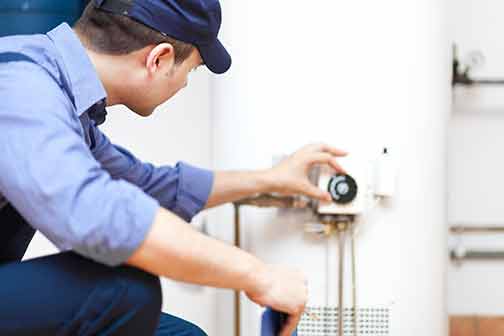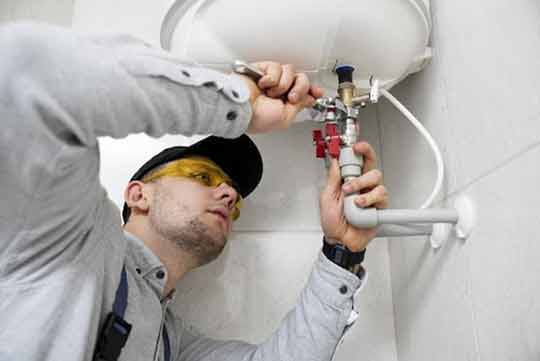
Installing a water heater can be a daunting task, especially for those who have little experience with plumbing and electrical work. While it may seem like a cost-effective option to take on the installation yourself, there are several common mistakes that DIY enthusiasts often make. These mistakes can not only lead to improper functioning of the water heater but also pose safety hazards. In this article, we will discuss the five most common mistakes of DIY water heater installation to help you avoid them and ensure a successful installation.
Lack of Proper Planning and Research
One of the biggest mistakes DIYers make when installing a water heater is rushing into the project without proper planning and research. It is essential to understand the specific requirements of the water heater you are installing, such as the capacity, power source, drain connections, and venting options. Each type of water heater has its own set of installation guidelines and safety precautions, which must be followed diligently to avoid any future issues.
Prior to the installation, make sure you measure the available space accurately to determine the appropriate size of the water heater. Additionally, research local building codes and regulations to ensure compliance. Failure to adequately plan and research can result in a water heater that is too large or small for the space, improper venting, or non-compliance with code requirements.
Incorrect Plumbing Connections
Another common mistake in DIY water heater installation is making incorrect plumbing connections. It is crucial to understand the correct placement and connection of water supply lines, pressure relief valves, and drain lines. Improper plumbing connections can lead to leaks, reduced water flow, or even irreversible damage to the water heater itself.
When connecting the water supply lines, ensure that they are tightly secured using appropriate fittings, such as soldered or threaded connections. Additionally, use a Teflon tape or pipe compound to seal threaded connections and prevent leaks. When installing the pressure relief valve, follow the manufacturer’s instructions to ensure proper placement and functionality. Lastly, ensure that the drain line is properly connected and positioned, allowing for effective drainage of water in case of pressure release or tank leakage.
Ignoring Electrical Safety Guidelines
Electrical work is a critical aspect of water heater installation, and failing to follow electrical safety guidelines can have severe consequences. One common mistake is not turning off the power supply before starting the installation. Before performing any electrical connections, locate the appropriate circuit breaker and turn it off. This will help prevent any electrical shocks or short circuits that can occur during the installation process.
Additionally, it is essential to use the correct wire size and voltage for the water heater model you are installing. Using an undersized wire or incorrect voltage can result in overheating, electrical fires, or damage to the water heater. If you are unsure about the electrical connections or have little experience in this area, it is recommended to seek professional assistance to ensure your safety and the proper functioning of the water heater.
Inadequate Ventilation
Proper ventilation is crucial for ensuring the safe operation of a water heater. Insufficient ventilation can lead to a buildup of toxic gases such as carbon monoxide, which can be harmful or even deadly. This is especially true for gas-powered water heaters.
When installing a water heater, it is essential to provide adequate ventilation according to the manufacturer’s guidelines. Vent pipes should be correctly installed and routed to the exterior of the building, ensuring proper airflow and gas exhaust. Failure to provide adequate ventilation can result in the accumulation of harmful gases, leading to serious health risks for you and your family.
Skipping Regular Maintenance
After successfully installing a water heater, it is crucial to perform regular maintenance to ensure its longevity and optimal performance. DIYers often make the mistake of neglecting maintenance tasks, which can lead to premature failure of the water heater.
Regular maintenance tasks include flushing the tank to remove sediment buildup, inspecting and cleaning the burner or heating element, checking the pressure relief valve, and testing the temperature and pressure settings. Neglecting these maintenance tasks can result in decreased efficiency, increased energy consumption, and potential damage to the water heater.

The Importance of Professional Installation
While the allure of saving money by performing a DIY water heater installation may be strong, it is important to recognize the potential risks and challenges associated with the task. Hiring a professional plumber nearby or contractor with expertise in water heater installation can provide several benefits:
- Experience: Professionals have the necessary knowledge and experience to tackle water heater installations efficiently and safely.
- Compliance: Professionals are familiar with local building codes and regulations, ensuring that the installation meets all necessary requirements.
- Safety: Professionals prioritize safety and follow proper procedures to minimize risks and hazards associated with water heater installation.
- Warranty: Many manufacturers require professional installation to uphold the warranty on the water heater. DIY installation may void the warranty and result in expensive repairs or replacements.
- Peace of Mind: By hiring a professional, you can have peace of mind knowing that your water heater is correctly installed and functioning optimally.
In conclusion, DIY water heater installation can often lead to costly mistakes and safety hazards. It is vital to invest time in planning, researching, and following proper installation procedures to ensure the successful and safe operation of your water heater. If you lack the necessary skills or are unsure about any aspect of the installation process, it is highly recommended to hire a professional to complete the task. By doing so, you can avoid potential issues and ensure that your water heater operates efficiently for years to come.
